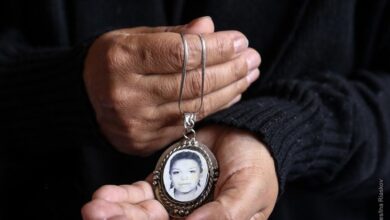World’s longest-serving death row inmate acquitted in Japan
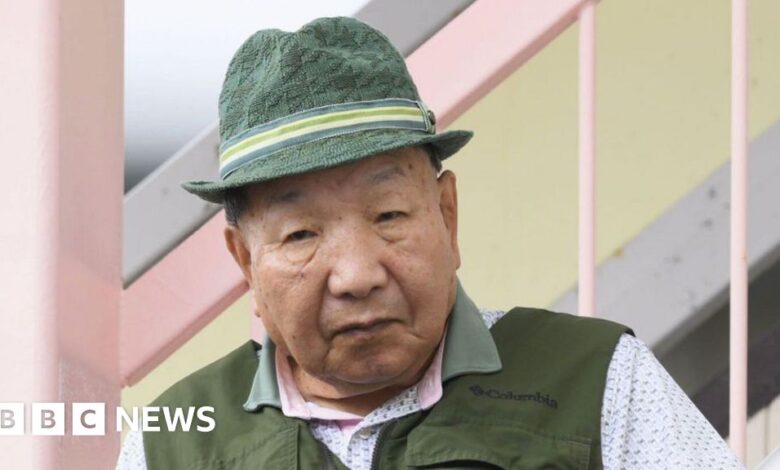
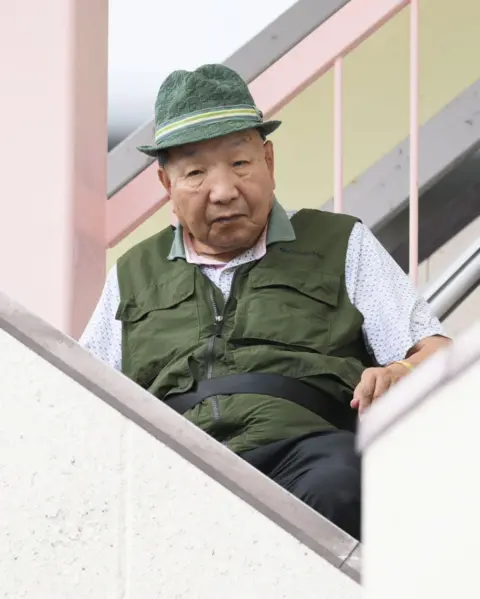 Reuters
ReutersAn 88-year-old man, the world’s longest-serving death row inmate, has been acquitted by a Japanese court after evidence against him was found to be fabricated.
Iwao Hakamada, who has been on death row for more than half a century, was convicted in 1968 of killing his boss, his wife and their two teenage children.
He was recently retried due to suspicions that investigators may have planted evidence that led to his conviction for the murder of four people.
However, more than half a century in prison had taken a heavy toll on Hakamada’s mental health, meaning he was unfit to attend his acquittal hearing.
Hakamada’s case is one of Japan’s longest-running and most high-profile, attracting widespread public interest, with about 500 people lining up for seats at the courtroom in Shizuoka on Thursday.
As the verdict was delivered, Hakamada’s supporters outside the court cheered “banzai” – a Japanese exclamation meaning “cheers”.
Hakamada was not present in court as he was exempted from all hearings due to his impaired mental state.
He has been living under the care of his sister since 2014, when he was released from prison and retried.
‘Bloody’ clothes found in a vat of miso
A former professional boxer, Hakamada was working at a miso factory in 1966 when the bodies of his employer, his wife and two children were found in a fire at their home in Shizuoka, west of Tokyo. All four had been stabbed to death.
Authorities accused Hakamada of killing his family, burning down his house and stealing 200,000 yen in cash.
Hakamada initially denied robbing and killing the victims, but later gave what he described as a coerced confession after being beaten and interrogated for up to 12 hours a day.
In 1968, he was convicted of murder and arson, and sentenced to death.
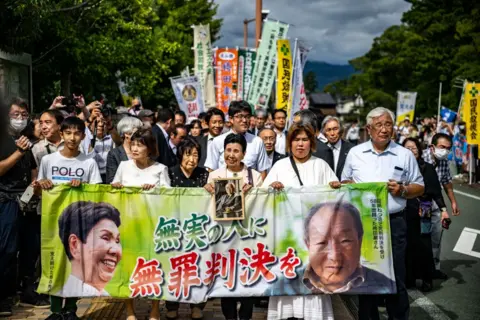 Getty Images
Getty ImagesThe decades-long legal battle eventually turned to some clothing found in a vat of miso a year after Hakamada’s arrest. Those clothes, allegedly stained with blood, were used to incriminate him.
However, for years, Hakamada’s lawyers argued that the DNA recovered from the clothing did not match his, raising the possibility that the items belonged to someone else. The lawyers also suggested that the police may have fabricated the evidence.
Their argument was enough to convince Judge Hiroaki Murayama, who noted in 2014 that “the clothes did not belong to the defendant.”
Murayama said at the time: “It would be unjust to detain the defendant any further, as the defendant’s innocence has become apparent to a considerable extent.”
Hakamada was later released from prison and retried.
The lengthy proceedings meant it was not until last year that the retrial began – and it was not until Thursday morning that the court announced its verdict.
While the DNA argument was rejected, the judge found another argument by the defense attorney to be credible — that the red stain found on the clothing could not have been blood, as blood would not have remained red on clothing after being soaked in miso for a year.
The judge found Hakamada innocent and concluded that key evidence presented by the prosecutor was fabricated.
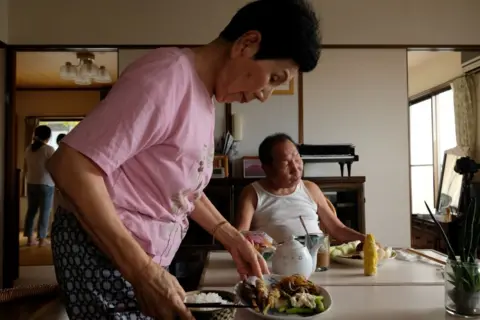 Getty Images
Getty ImagesDecades of incarceration, mostly in solitary confinement with the constant threat of death, have taken a heavy toll on Hakamada’s mental health, according to his lawyers and family.
His 91-year-old sister, Hideko, has long fought for his release. Last year, when the retrial began, she expressed relief, saying that “finally a burden has been lifted off my shoulders”.
Retrials of death row inmates are rare in Japan – Hakamada’s is only the fifth case in Japan’s postwar history.
Along with the United States, Japan is the only G7 country that still imposes the death penalty, with death row inmates only informed of their hangings just hours in advance.




